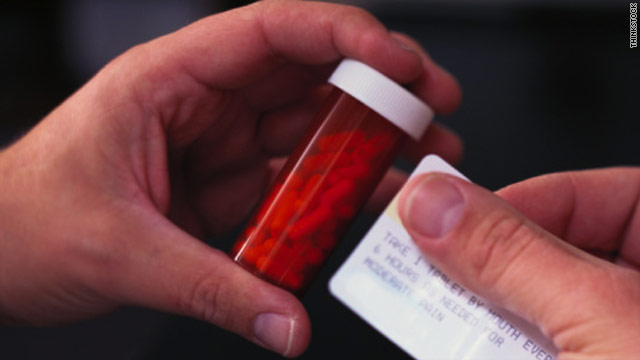
Manufacturers of prescription drugs containing acetaminophen are being asked to limit the dosage of the drug and add a liver toxicity warning to product labels, the Food and Drug Administration announced Thursday. This so-called "boxed warning" is the agency's strongest warning for a prescription drug.
Makers of prescription products that include acetaminophen, a popular pain and fever reducer better known under the brand name Tylenol, will be required to limit the amount of the drug to no more than 325 milligrams (mg) per tablet or capsule. Currently some products contain between 500 mg to 750 mg per dose.
"FDA is taking this action to make prescription combination pain medications containing acetaminophen safer for patients to use," said Dr. Sandra Kweder, deputy director of the Office of New Drugs in FDA's Center for Drug Evaluation and research (CDER). "Overdose from prescription combination products containing acetaminophen account for nearly half of all cases of acetaminophen related liver failure in the United States, many of which result in liver transplant or death."
Acetaminophen is often used in combination with opioids like oxycodone (Percocet), hydrocodone (Vicodin) and codeine (Tylenol with Codeine). In 2008 nearly 200 million prescriptions for acetaminophen/opioid combination products were written, according to the FDA. In 2009, an FDA advisory committee recommended putting a stronger warning about the risk of severe liver damage on the label of all prescription products containing the drug.
Kweder stresses when taken as directed, acetaminophen is perfectly safe but can be extremely dangerous if the recommended dose is exceeded. The current maximum dose is 4,000 mg within a 24-hour period. She says patients taking a higher dose prescribed by a doctor are in no immediate danger and can continue taking the medication as prescribed.
Over-the-counter acetaminophen will not be affected by this new action, although the FDA is considering changes with these medications too. OTC products typically contain either 325 mg (regular strength) or 500 mg (extra strength) of acetaminophen. One reason that these drugs aren't included in today's action, says Kweder says, is that they are already more clearly labeled than the combination drugs.
Unlike over-the-counter products that are clearly labeled, Kweder says, it's not always clear to consumers that acetaminophen is in the prescription products they are taking because they're not familiar with the abbreviated name–APAP–often used in the packaging. "One of the real challenges is patients taking these prescription products don't know they are taking acetaminophen at all," she said. So it's possible for someone to take the prescription drug and then reach for an OTC product Acetaminophen, which can quickly add up to too much of a good thing. "They don't realize that they are overdosing," Kweder told reporters in press conference.
Neurologist Dr. John Markman is a pain management expert and researcher at the University of Rochester in New York. He says today's action strikes the right balance. "I think they got it right. I think they made a great public health decision by balancing the need for access to these important pain treatments and at the same time taking steps to make them safer." Markman said. "The risk of liver injury with acetaminophen when taken in excessive doses can be a significant problem for an individual patient as well as at a public health level, but so is the problem of chronic pain, so trying to find a balance of addressing both of these public health problems is delicate work."
But consumer advocacy group Public Citizen says the agency should have addressed the OTC drugs first.
"The measures announced today by the Food and Drug Administration (FDA) concerning acetaminophen in prescription drug products are certainly a step forward, but they entirely fail to address the greater issue of over-the-counter (OTC) use of this drug and to implement strong recommendations made by three FDA advisory committees in June 2009 about this problem," said Dr. Sidney Wolfe, Director, Public Citizen's Health Research Group. "It is inexcusably poor judgment on the part of the FDA to have failed to take action concerning this major source of acetaminophen consumption and, consequently, acetaminophen toxicity."
The shift away from higher doses of acetaminophen will be phased in over the next three years. Prescription products will continue to be available during this transition period and the FDA says they anticipate no shortage of pain medication.
In the meantime the FDA has the following advice for consumers:
*Carefully read all labels for prescription and OTC drugs
*Ask the pharmacist if your prescription contains acetaminophen
*Don't take more than 1 product that contains acetaminophen
*Don't take more than the maximum daily amount
*Avoid drinking alcohol while taking acetaminophen
*Don't stop taking acetaminophen without first talking to your doctor
*Carefully read all labels for prescription and OTC drugs
*Ask the pharmacist if your prescription contains acetaminophen
*Don't take more than 1 product that contains acetaminophen
*Don't take more than the maximum daily amount
*Avoid drinking alcohol while taking acetaminophen
*Don't stop taking acetaminophen without first talking to your doctor
No comments:
Post a Comment
Note: Only a member of this blog may post a comment.